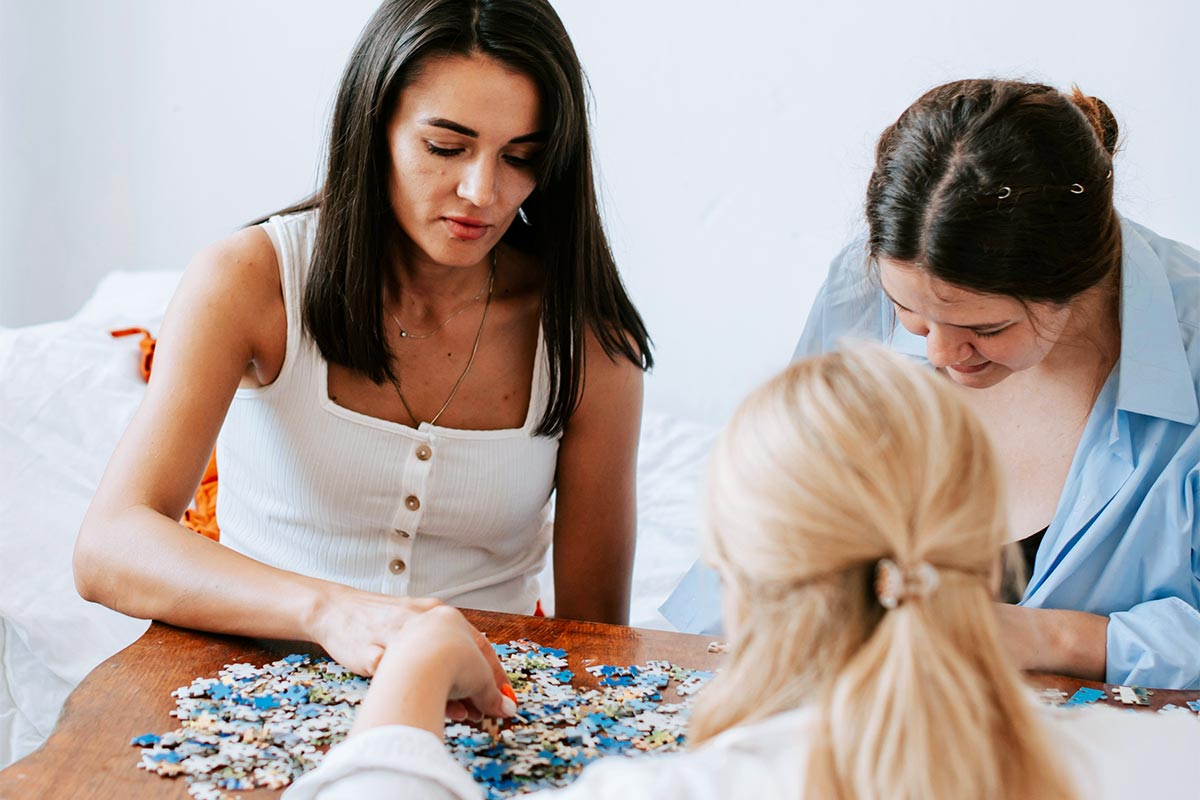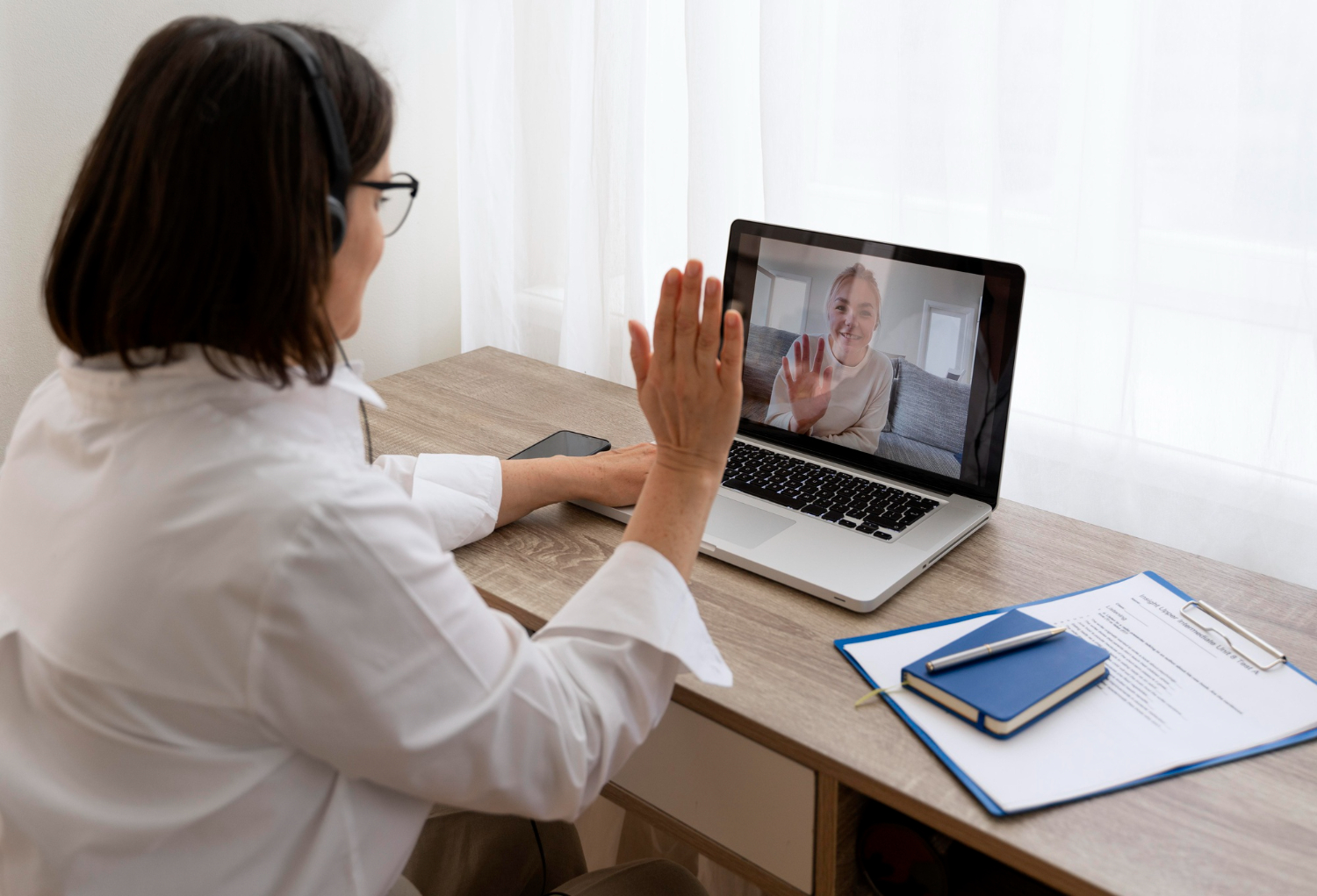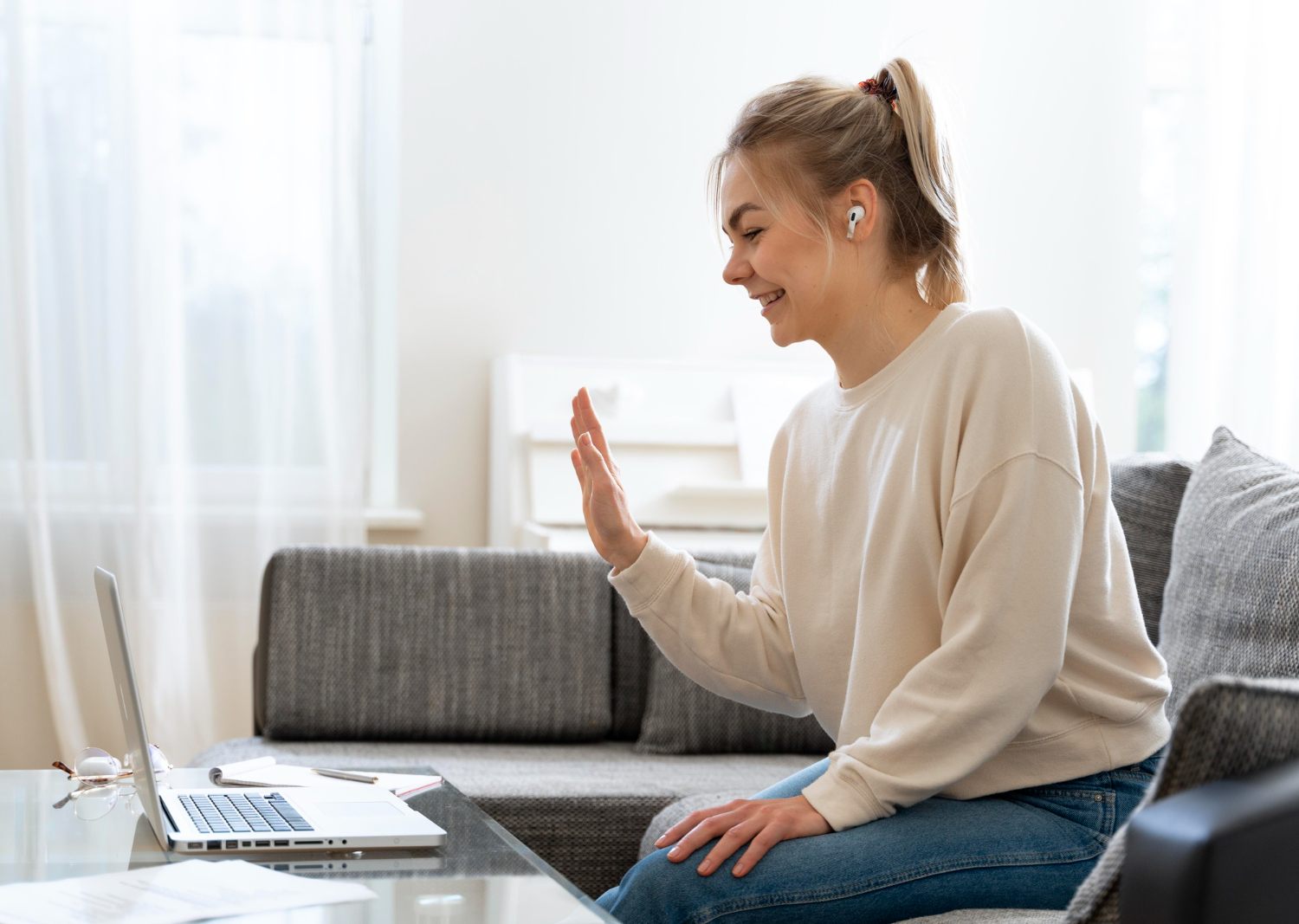If you’re struggling with memory, feel like you’re living in a fog, or can’t concentrate enough to remember what you had for breakfast, you’re not alone. Today, more than 50 million Americans struggle with mental health problems like anxiety, depression, PTSD, and more. Often, those mental health disorders have significant impacts on your memory and focus. Working to sharpen both can be an important part of your recovery process.
For many of us, that means getting help by going to treatment, learning to manage mental health problems, and added exercises like these 8 brain exercises on top of that. That will give you a good baseline to heal and to build from.
1. Mindfulness Meditation
Mindfulness and meditation are increasingly popular in western medicine with everything from Mindfulness Based Stress Reduction (MBSR) to simple and short meditations available. Mindfulness is proven to help practitioners reduce stress while practicing, to improve focus, and to improve awareness and attention. Mindfulness is essentially an ongoing form of attention training. Here, you have meditation sessions where you actively practice paying attention to the present, focusing on your current thoughts and the present, and acknowledging what’s going on around you. Over time, it evolves into practicing this throughout your daily life. This is meant to reduce worry and stress. However, it also means you actively train attention and work on your focus as part of your daily life.
How can you practice mindfulness? Try an app like Headspace. Go to a class. Or, talk to your doctor about a recommendation into an MBSR program – which your insurance may help pay for.
2. Puzzles and Games
Challenge and light stress can help you to build focus and memory over time. That means that engaging your brain with light work like puzzles and games can help you improve memory and focus. Best of all, you’ll probably have fun playing them. You’re looking for mental stimulation, and that can be quite a lot of fun.
Some great ideas include jigsaw puzzles, crosswords, Sudoku, nonograms, phone app puzzles, and even real-life puzzles like escape rooms. What you engage in is up to you. The important thing is that you spend some time on focus and interaction, so you can train your brain.

3. Memory Recall Exercises
Did you know that simply playing with flash cards can help you train your memory and your focus. Memory recall games can be structured or not, but they will help you build memory and retention over time.
If you’re out of practice, try buying a flash card game. Alternatively, you can try buying a simple memory recall game like Color Memory from Smallfoot or Rememberer, which asks you to play against one or more partners to remember the most card matches.
You can also:
- Try memorizing passages of a book
- Play games with yourself remembering your list of groceries or a conversation
- Recite poetry from memory and add new poems every few weeks
Memory recall exercises can be a lot of fun and you might even reach other goals at the same time.
Get your question answered now.
4. Visualization Techniques
Visualization techniques are similar to memory recall exercises. You remember something and try to bring it up in your mind. However, instead of remembering facts or a name or a list, you’re trying to picture an image. Often, that can be a lot harder than you think. Visualization means creating a mental picture of an object and not everyone can do it. However, you can start small by looking at an object and then turning around and trying to picture it in your mind. Try to get as many details as possible correct. Then, turn around and check how close you were. You can add challenge by adding more time between looking at the object and visualizing it. However, this will help you improve focus and strengthen memory.
This technique is sometimes used as part of therapy. This means you might get to practice it with your therapist depending on what treatment you’re getting.
5. Language Learning
Most people think that a good memory will positively impact your ability to learn a language. However, the reverse is also true. In one study, Cambridge University showed that learning a language improves your attention, your focus, and your memory – boosting your cognitive abilities across a full spectrum of daily activities. That’s so much true that when paired head-to-head, students going through the same classes performed better in almost every class if they were learning a language at the same time versus if they were not.
How can you get started with language learning? Try free resources like YouTube and DuoLingo, sign up for classes, and make sure you pick a language you can practice so try to pick something with resources like local speakers (especially friends) in your area.
6. Physical Exercise
Most types of exercise will be good for you memory and your focus. However, what you’re looking for here is a type of exercise that requires you to learn, to focus, and to control your breath. That can be something gentle like yoga or tai chi. It can also be something a bit more fast-paced like roller derby, kickboxing, or bouldering. These kinds of exercises force you to focus on your body, to see working out as a puzzle, and to leave thoughts that aren’t about your workout behind. That will reduce stress, improve focus, and eventually help you with cognitive function and memory.
Plus, the actual sport doesn’t matter so much as the fact that you’re using your brain and are forced to do so to complete the exercise.
7. Brain Training Apps
If you have a smartphone, you have access to apps designed to help you engage attention and focus. Some examples include Lumosity and Elevate. However, there are dozens of others, and many of them are completely free.
Most gamify exercises like memory recall, math, and focus games. Many will also track progress and give you motivation and reminders to keep going. That might be a lot easier than remembering to do exercises every day – especially if you have trouble with focus and memory.
Of course, not all apps are free and you might find that free versions do have ads and other annoyances to get in the way, so these aren’t always the best option.
8. Creative Activities
Creative pursuits like art, drawing, painting, writing, making music, and theater are good for your attention, good for your memory, and good for you. More and more therapists use them as part of treatment with complementary art and music therapy often the norm in mental health treatment. Here, you get an outlet to be creative, to relieve stress, and to improve discipline and focus – while having fun and focusing your attention on a task. That’s great for you in many ways. The key is, of course, to be consistent and to keep going back, because these kinds of activities are only beneficial while you’re doing them.
How do you get started? Take a class, look on YouTube, talk to your therapist about art and music therapy. Begin small, don’t go wild buying art supplies until you know you like something, and try to have fun.

Getting Help
If you or a loved one is struggling with mental health, it’s important that you get help. Working to improve focus and memory can improve things. However, it’s also critical that you treat the underlying causes and give yourself the framework and tools you need to improve quality of life over the long term.
If you or a loved one is struggling, get in touch. One of our consultants can talk to you about treatment options, next steps, and matching a personalized treatment program to your needs.










